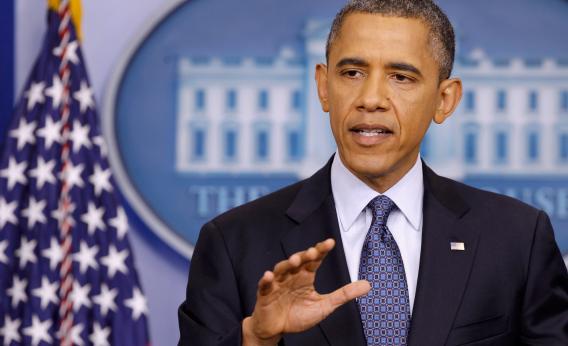It was a terrible week for the good guys. First, job numbers that were awful enough to indicate a bad trend, anemic growth at best. Then a shellacking in Wisconsin, that proved the public’s diminished support for civil service unions, a core Democratic constituency. And finally, the inexplicable news conference in which President Obama declared the “private sector is doing just fine.”
The economy is in dire straits: It needs a demand stimulus and will not be rescued by a China, whose own growth has flat-lined, or a Europe on the verge of catastrophe.
Meanwhile, Democratic politics have pretty much devolved into attacks on either Mitt Romney or Scott Walker. The apparent absence of genuine hope right now has serious consequences for the viability of the president’s argument that he is the voice of the future. His politics look more and more like the old-fashioned slash-and-burn of years past.
The only good news for the president is that the campaign has barely started, and he has loads of time to reboot the argument. And even if “hope” is hard to come by right now, Americans do not have to give up on the idea of change. So here are a few ideas for reclaiming the argument for “change.”
First, Democrats shouldn’t just attack Bain. They should transform the argument into “we did it better.” They should make the argument that the president is better at private equity than Mitt. The evidence? GM vs. Bain. There is nothing wrong with nimble capital that restructures business and participates in the creative destruction of capitalism. In fact it is a good thing if done properly, as it was in the auto-sector restructuring. Mitt wanted the auto sector to go bankrupt, but President Obama invested and saved it. Change is tough but good.
Second: The economy is lousy for kids just out of college or high school. How about a year of national service? This should be the modern-day WPA: We will give you a job—it can be enlisting in the military if you choose. But we will pay you, give you skills, keep you off the streetsand, by the way, cover your student debts for the time you are in the program. Slay the student-debt issue as part of this, and align yourself with community and patriotism.
Third: Another change-based idea that speaks to a major structural problem. The president should become the voice of shareholder empowerment. The issue of corporate reform has been mired in a one-dimensional debate about regulation. The reality is that ownership trumps regulation, and empowering shareholders is the more important issue. Some embers of hope are evident: shareholder push back on “say on pay”; an effort to force ExxonMobil to move forward on gay issues; and the recent push back against Chesapeake Energy led by New York State Comptroller Tom DiNapoli.
This issue is the key to reforming our corporate structure. The president should push the SEC to change rules relating to proxy fights, board selection, compensation committee membership, and the role of mutual funds and other institutional investors. You can become the ownership president, not the regulatory president. How can even the U.S. Chamber of Commerce oppose that?
And finally, the president should come out for fundamental tax restructuring. Equalize capital gains rates and ordinary income rates and close all the foolish loopholes that distort investment priorities. Announce it with specificity, and push for it. No more mealy mouthed leading from behind, as you did with Bowles-Simpson.
The White House is adrift. But it can pretty easily be retooled to recapture the continuing eagerness for change.
